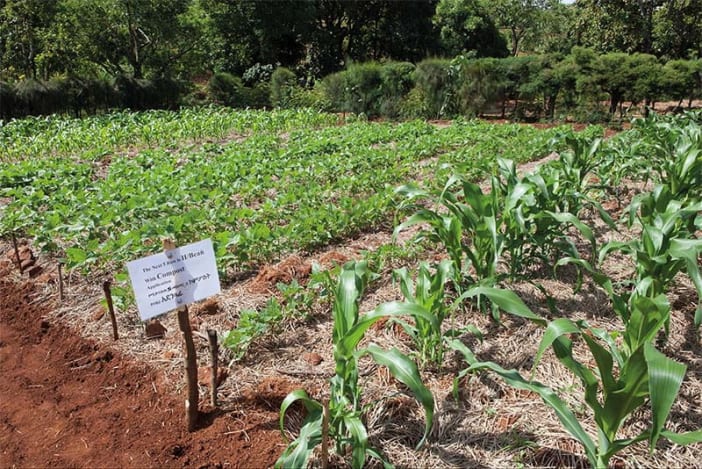In the Philippines, it is very common to see neighbours helping a family repair their house or preparing food for the wedding of a son or daughter. Filipinos are ready to help one another in times of need, celebration or grief. This readiness to offer each other time and support is known as alayon (a voluntary work group) in the Philippines. The main purpose of forming an alayon is simply to help one another lighten a heavy task. People organise alayons to help with farm work, harvesting crops, constructing or repairing houses or to prepare food during weddings, feasts and burials.
Mag-uugmad is an organisation which builds on the alayon work group system and uses it to carry out soil and water conservation programmes. Farmers learn new technologies and conservation techniques to help them develop a sustainable farming system while increasing farm production.
Farmers who are interested to learn about soil and water conservation form small groups and then discuss their plans with a farmer instructor. Normally, an alayon group meets twice a week to work on each others’ farms. They use a rotation scheme to make sure each farmer’s farm receives the same attention.
During alayon days, the farmer instructor shares knowledge with alayon members right on their farms. They learn how to build drainage canals, bench terraces, contour ditches, rock walls and many other ideas depending on the needs of each farm situation. Alayon members immediately apply what they learn. Each alayon member is also encouraged to train and assist new members in learning the technologies. At the end of an alayon day, members review and reflect on their activities during the day.
The ideal number for membership of an alayon is between five and eight. With over eight members in the alayon, the rotation process is very slow.
Groups of neighbours, relatives, women or young people can form their own alayon group. The most important considerations are their interest to learn the technology and willingness to work. Establishing new soil and water conservation technologies can be hard work so there’s no room for lazy people!
Advantages of the system
There are many advantages for Maguugmad in using the alayon groups:
- This approach reduces the burden and work involved – more people help each farmer finish the farm tasks.
- This system allows for the sharing of draft animals, planting materials and other resources which makes farm activities and land cultivation a lot easier.
- There is the opportunity for building friendships and teamwork – people share ideas, experiences and problems.
- The alayon group can also perform activities outside the farms, such as constructing feeder roads and digging water catchments. The health programme has women alayon groups for backyard gardening and community sanitation activities.
Problems encountered
Just like any community group, Alayons are not free from problems. In the early days of the programme, many can occur.
- The most common problem is the practice of preparing meals during the working days. An alayon member started the practice of serving lunch for the group who worked on his farm. After a while, other members did the same thing. Before everyone realised it, the practice created competition among alayon members. It became a contest of who could afford to serve lunch for five or more! People became less active and eventually left the group.
- A second problem was lateness among members. Some members would always arrive late to meetings.
- Substitution was a third problem. Members of the alayon would sometimes send their children as substitutes. Children were not capable of performing the heavy farm labour. The result was slower progress of the alayon work and reduced enthusiasm of members for hard work.
Solutions
Problems of the alayon were solved by the farmers themselves with the help of the farmer instructor. Alayon groups have regular monthly meetings. The farmer instructor never mentions the problem at the start of the meeting but instead uses the self-evaluation approach, asking the farmers what problems they have encountered in the alayon. Then farmers start sharing their problems and discussing them one by one.
In the discussion, the farmer instructor is very careful not to offend members who are concerned – for instance those who are always late and absent from alayon work. When all the problems are listed on the board, the farmers work out their own solutions by asking questions like ‘What do you think is the best thing to do to avoid absenteeism among members?’ instead of saying, ‘This is what you should do.’
For example, solutions to some of the problems mentioned above are as follows:
- Farmers agreed that all, including the farmer instructor, should bring their own food when attending alayon work.
- Alayon groups imposed a fine to discourage late-comers.
- Alayon members stopped sending their children as substitutes. Instead, they sent somebody older who was capable of doing the farm tasks.
- Farmers agreed to be honest and dedicated in their alayon tasks.
Maylaine P Tabasa works with the Maguugmad Foundation as a media production officer. Their address is PO Box 286, 6000 Cebu City, Philippines.








